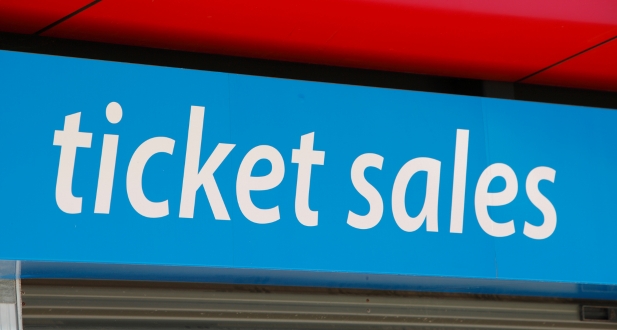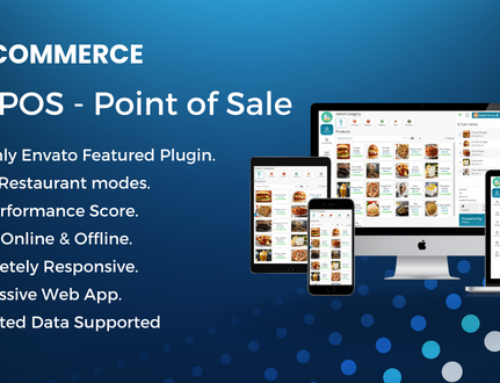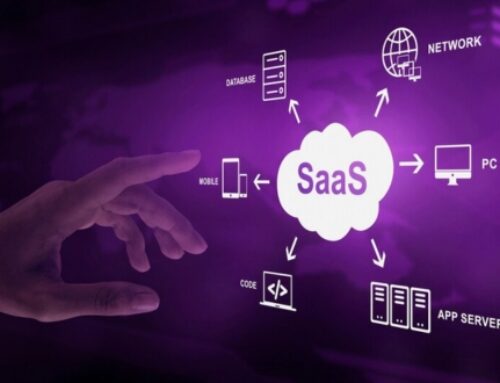This innovative system for event administration and ticket sales gives event planners a wide range of options to easily manage their events. Sensitive data and transactions are kept safe because of its foundation’s security and dependability. From event registration to ticket purchasing, guests can have a seamless experience thanks to the system, which also includes an intuitive mobile application for fast access to event information and tickets. The system also offers tools that enable event planners to design and customize their event pages, control registrations, and keep track of attendee activities. Event planners can simplify their event planning process and offer attendees a hassle-free event experience with the help of this robust event management and ticket sales system.
General Process
Organizers register with the platform and submit events:
Event planners must first register on the site and set up an account. The event name, date, time, place, description, and ticket options can all be included on the page they construct for the event.
Online or at the points of sale, attendees register and purchase event tickets:
Once the event page has been built, guests can sign up and buy tickets online or at authorized points of sale. Attendees can choose from a number of payment options on the platform.
Revenue from ticket sales is deposited into the administrator’s account:
The platform will take the proceeds from ticket sales when a participant buys a ticket and deposit them into the administrator account. Until the event organizer submits a payout request, the administrator will keep the cash.
When attendees arrive at the event, they scan the QR code on their tickets:
Attendees will need to show their tickets, which contain a special QR code, in order to enter the event. To confirm the validity and legitimacy of the ticket, the QR code is scanned.
By using the scanners’ accounts, the organizers can check the tickets and track attendance:
The attendees’ attendance will be recorded by the organizers by scanning the QR codes on their tickets with a scanner account. The event managers will be better able to keep track of attendance thanks to this.
To get payment, organizers file a payout request:
Following the completion of the event, the event organizer can submit a payout request to get their earnings. The platform will deduct the service fees before transferring the remaining funds to the organizer’s account.
Following approval and after subtracting the fees, the organizers are paid:
The remaining balance will be transmitted to the organizer’s account following the approval of the payout request, less the platform’s fees. The monies are then available for the organizer to utilize for any event-related costs.
Fixed and dynamic fees are part of the ticket sales and event management system’s business strategy.
Fixed fees are defined as an additional charge that is added to the ticket price and must be paid by attendees for each ticket purchased. When an event organizer wishes to pay the expense of utilizing the platform and is unsure of how much money they will make, they frequently employ this price structure.
In contrast, dynamic fees are a percentage deducted from the price of a ticket. This percentage will be determined by the event organizer, and the platform will automatically subtract it from the proceeds from ticket sales. No additional fees will be charged to attendees, and the proportion can be chosen by the event organizer based on the event’s size and personal preferences. When event organizers want a flexible charge structure that can help them increase revenue, they frequently choose this cost structure for bigger events.
Features
Setup wizard –
The installation process will be made simpler for users who might not have any coding knowledge thanks to this functionality. The wizard ensures that the platform is configured properly by guiding users step-by-step through the installation procedure.
Detailed dashboard –
Administrators can control and modify any feature of the platform via a dashboard, which is a strong tool. Administrators can do a variety of things from this page, including create, view, and manage events and attendees.
Expert Statistics –
Event administrators and organizers may keep track of sales in-depth with the help of this tool, which gives real-time sales statistics for events. Users can review sales for a given event, event date, or ticket.
Theme –
Users can utilize this tool to personalize the platform by altering the theme color, logo, time zone, and other features. This guarantees that the platform reflects the event’s branding.
Reports –
Administrators can produce comprehensive reports using this capability in formats like PDF, Excel, and CSV. These reports can be used to analyze ticket sales, attendance rates, and other variables.
Gateways for accepting payments –
The platform provides a number of payment processors, including cash, PayPal, and Stripe. This guarantees that users have a number of payment alternatives to select from.
Mobile scanner application –
The QR codes on guests’ tickets may now be scanned by event organizers using a mobile application, speeding up and streamlining registration.
Points of sale –
The ability to establish numerous points of sale accounts gives organizers the ability to sell tickets and accept cash payments.
RTL and multilingual –
Users can effortlessly switch between languages because to the platform’s support for several languages. Languages that are written right to left are also supported by the platform.
Social media login –
Users can quickly and simply authenticate with this functionality by logging into their Facebook or Google accounts, among other social media sites.
Help desk –
A help center is available on the site, where users can obtain solutions to frequently asked problems. To make it easier for users to access the information they need, the help center has search capabilities, categories, and tags.
Blog –
The software has a blog component that enables planners to communicate thoughts and advice to attendees. The blog is made to be straightforward but effective, with a contemporary layout and material that can be translated.
Additional features
Events search in advance – A robust search feature that enables visitors to narrow down events using many filters, including location, date, category, and more.
Auto-suggestions for searches – To accelerate the search process, this function offers suggestions for potential matches as users write in the search bar.
Homepage options – The option to alter the homepage’s appearance and feel, as well as its design and highlighted events.
Calendar of Events – A calendar that users may search events by date on and that shows all future events.
Events Map – All events are displayed on a map, making it simple for users to find events nearby.
Activities RSS Feed – An RSS feed that users may subscribe to in their choice RSS reader and which lists all forthcoming events.
Locational data – The capacity to instantly determine a user’s position and display events nearby.
Mailchimp newsletter – Integration with Mailchimp enables organizers of events to communicate with their subscribers via newsletters.
Module for Favorites – Events can be easily saved as favorites for subsequent access.
Special discounts – The capability of the organizers to provide special discount ticket rates.
The cart system – A feature in a shopping cart that enables users to add several events and pay for them all at once.
Event Photo Gallery – A collection of photographs pertaining to an event.
Calendar event addition – The capability of adding an event to a user’s personal calendar with a single click.
Event video – The inclusion of a video relating to an event.
Organizer profile – Users can browse all of their previous and forthcoming events on a website dedicated to each organizer.
List of Event Attendees- A list of every person who attended each event, available solely to the organizer.
Reviews Module – A feature that allows people to rate and review events.
Editable static pages– An easy-to-use content management system (CMS) for managing static pages like “about us,” “contact us,” “terms and conditions,” etc.
Social media sharing – The capacity to post events on social networking networks like Facebook, Twitter, etc.
Manageable categories – Events’ categories can be created and managed by organizers.
Pages and list of venues – A listing of all the locations where activities are taking place, along with a page specifically for each location.
Follow organizer – Users should have the option to follow the organizers of events they want to get updates from about their forthcoming activities.
PDF Tickets – A PDF-formatted ticket generation and download feature.
Dates for Ticket Sales – Ticket sales can begin and terminate on dates set by organizers.
Time Zone Selection – For showing event dates and times, users can select their preferred time zone.
SEO settings – Search engine optimisation settings to assist event planners in enhancing the exposure of their event in search engines.
Venue quotation form – A form allows users to obtain a quote from a venue for hosting their event.
Event audiences – The intended audience for an event can be specified by organizers.
Venue amenities – A list of amenities given by each location.
Email notification – For a variety of events, automatic email alerts are sent to the organizers and participants, including confirmations of ticket purchases and upcoming event reminders.
Order information – A thorough view of all user orders that is only available to the organizer.
Design that is flexible – A layout that changes to fit multiple screen sizes and offers a seamless user experience across all platforms.
The Google reCAPTCHA – An anti-spam and anti-abuse measure for the platform.
Maintenance mode – A setting that enables platform managers to shut down the service for maintenance.
Special CSS – Using unique CSS to alter the platform’s appearance and experience.
Translate the event’s content – Event planners have the option of translating the content into various languages.
Order’s time to expire – The time frame for finishing a ticket purchase can be set by the organizers.
Online events – Hosting online/virtual events is a capability of organizers.
Comments on Facebook – Users’ capacity to post reviews on events utilizing their Facebook accounts.
Lazy image loading – A method for speeding up page load times by just loading images as they are needed.
The cookie bar – A notice to let people know that cookies are being used on
Discuss comments – Allows users to discuss events and leave comments on them.
Using Google Analytics – Gives useful information about the platform’s traffic and performance.
Personalized date format – Allows customers to specify the date format they like to use for events and tickets.
Translator files that can be edited – Allows for the editing of translation files in any language.
Automatic sitemap generation – Automatically creates a sitemap, which boosts the platform’s search engine optimization.
Easily navigable menus – Enables platform administrators to develop and maintain menus for simple navigation.
Multiple updates – The platform regularly gets updates and upgrades to increase its features and usability.









